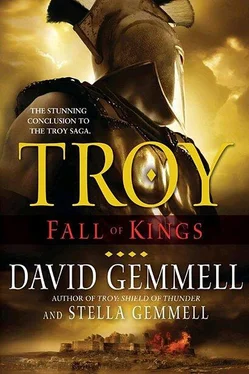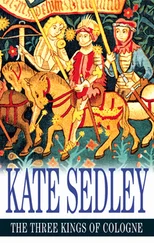Stella Gemmell - Fall of Kings
Здесь есть возможность читать онлайн «Stella Gemmell - Fall of Kings» весь текст электронной книги совершенно бесплатно (целиком полную версию без сокращений). В некоторых случаях можно слушать аудио, скачать через торрент в формате fb2 и присутствует краткое содержание. Год выпуска: 2011, Жанр: Исторические приключения, на английском языке. Описание произведения, (предисловие) а так же отзывы посетителей доступны на портале библиотеки ЛибКат.
- Название:Fall of Kings
- Автор:
- Жанр:
- Год:2011
- ISBN:нет данных
- Рейтинг книги:4 / 5. Голосов: 1
-
Избранное:Добавить в избранное
- Отзывы:
-
Ваша оценка:
- 80
- 1
- 2
- 3
- 4
- 5
Fall of Kings: краткое содержание, описание и аннотация
Предлагаем к чтению аннотацию, описание, краткое содержание или предисловие (зависит от того, что написал сам автор книги «Fall of Kings»). Если вы не нашли необходимую информацию о книге — напишите в комментариях, мы постараемся отыскать её.
Fall of Kings — читать онлайн бесплатно полную книгу (весь текст) целиком
Ниже представлен текст книги, разбитый по страницам. Система сохранения места последней прочитанной страницы, позволяет с удобством читать онлайн бесплатно книгу «Fall of Kings», без необходимости каждый раз заново искать на чём Вы остановились. Поставьте закладку, и сможете в любой момент перейти на страницу, на которой закончили чтение.
Интервал:
Закладка:
As Ahmose had walked away disappointed, the pharaoh’s son had come running after him. Ahmose had stopped and smiled down at him. The boy was about ten, with a mop of black hair, intelligent eyes, and an eager smile.
“They say you are my uncle,” he asked. “Is that true?”
“Perhaps,” Ahmose told him.
“I am sorry we cannot be friends,” the boy said. “But I will speak to my father about the slaves. My mother says he can refuse me nothing.”
He had grinned, then turned and ran back to his father’s throne.
Standing in the darkness, Ahmose told Yeshua, “I think Rameses is a stubborn man and contrary in his nature. I have told him what I want from him; therefore, that is the last thing he will give me.”
“Then perhaps you should have asked him to keep our people here in Egypte.”
The prophet looked around, startled, and realized that cold-eyed Yeshua had made a joke. He laughed, and the sound echoed strangely over the land of despair.
“I will go and speak to him again. Perhaps he will relent now.”
As he set off for the palace, he thought back to the night long before on the island of Minoa when he had lain by a burning bush and the dreams and visions he had endured, dosed with opiates by the fey priestess Kassandra. He had seen mighty waves, rivers running red, darkness at noon, desolation and despair. He had seen his half brother raw-eyed with grief. He wondered what tragedy could make the cold-hearted pharaoh suffer so.
Yeshua came after him, grabbing him by the arm.
“You cannot go! He will certainly have you killed this time.”
“Have faith, my friend,” Ahmose told him. “God is great.”
It was the morning of the third day since the destruction of Thera and the coming of the waves. Helikaon and his son walked through the twilight along the gray shore of an unnamed island, splashing their bare feet in the shallows.
Astyanax kept stopping to peer into the shallow water. One of the crewmen had fashioned a shrimping net for him, and he was eager to catch some of the creatures. So far there was just a handful of the tiny transparent shellfish flopping about in the bottom of his net. Helikaon waited patiently each time the boy stopped to add one or two more. After all, there was nothing to hurry for.
Astyanax held up the net again for his father to inspect. “Good boy,” Helikaon told him. “Now, let’s go back to the camp and eat them.”
The sky still was clouded with ash, and there was a constant light ashfall, leaving a grainy grayness on everything. Even the crew’s campfires had to be protected from the ashfall or they would go out quickly. As father and son passed the cairn of small rocks raised to mark the bones of their comrades, Helikaon saw that it now appeared as if carved from a single smooth stone.
The Xanthos had survived all four of the great waves, each one smaller than the one before. After the brutal punishment of the first, Helikaon had not even tried to steer the ship. He just had held on grimly, one arm around the aft rail, one around Oniacus, who by then was unconscious. Yet gallantly the ship had plunged unerringly like a lance into each mountainous wave, as if steering herself. When the fourth wave had passed, Helikaon had gazed out over the sea. They had been swept into unknown waters. He had no idea where they were. He quickly untied himself and Oniacus, then raced down to the lower deck.
He never would forget the awful sight that struck his eyes. Andromache hung, helpless and still, from the ropes she had tied to a rear rowing bench. Her face was pale, and her hair drifted like seaweed in the shallow water on the planks of the deck. She still held the boys in a viselike grip. Both were alive, but they were sodden and white-faced, silent with shock.
Helikaon untied them, then picked Andromache up, dread in his heart. Her head lolled loosely, and her eyes were half-open, unseeing. He threw her down on the waterlogged deck, turning her to her stomach and pressing down on her back to try to expel the water. It seemed to make no difference. Her body was limp, unmoving. Crying out with anguish, he lifted her by the waist so that her head was down and shook her like a rag doll. At last she gave a faint sigh. Then water gushed out of her mouth, and she gave a weak cough. He shook her again, and more water gouted out. She started coughing harder and trying to struggle from his grip. He picked her up and pulled her tightly to him, tears of gratitude and relief falling down his cheeks.
They had lost twenty-nine of the sixty-eight souls on board. Strangely, the one-armed veteran Agrios had survived, but the youngster Praxos had been swept away. Of the survivors, many were injured, and two died later that day.
Helikaon had wrenched Oniacus’ dislocated shoulder back in place, tied it securely, and given the injured man the steering oar. Then he and Andromache had joined the uninjured crewmen to row the ship slowly through the ash-covered sea. It had been hard to see in the constant grayness, and Helikaon had despaired of finding a berth for the night when a darker shape had appeared out of the half-light.
It was a small low island, much of it scoured clean by the waves. They could not beach the ship, for they did not have the manpower to launch it again. They dropped the stone anchors in the shallows and struggled to the beach as best they could. Exhausted, they all slept where they lay regardless of the waves lapping at their feet. In the morning Helikaon sent out men to look for fresh water. They quickly discovered a clear spring nearby, and for the first time since they had left Thera, Helikaon knew they were safe for a while.
That night they recognized when sunset arrived only by the astonishing display of colors—bronze, red, and purple—in the darkened sky. Helikaon now knew which way was west, and he felt encouraged by the knowledge.
The next day they held funeral rites for their comrades. With no beasts to kill for sacrifice, the men poured libations from the one surviving jug of wine to placate Poseidon, who had brought them to this place, and to Apollo, begging him to bring back the sun.
As captain, Helikaon took part in the rites, but he walked away as soon as possible. He found the men’s simple devotion unfathomable and remembered a conversation he had had with Odysseus concerning the men’s faithfulness to such unreliable gods.
“All seamen are superstitious, or pious in their devotion, however you see it,” the Ithakan king said. “They are constantly in peril, at the mercy of the wind and the treacherous sea. Giving names to the elements and treating them like living men with human emotions makes them feel they have control over events which would otherwise seem random and meaningless.
“They are simple men and revere the gods as they revered their own fathers. When angry, their fathers could lash out at them and hurt them. When happy, they would feed them and keep them safe. So they try to keep the gods content, giving them food and wine and praising them, worshipping them. Do not sneer at their faith, Helikaon. We all need something to have faith in.”
“You do not believe in the gods, Odysseus.”
“I did not say that,” the older man replied. “I do not think the sun god Apollo drives his chariot across the sky each day like a slave tasked with a very dull chore, but it does not mean I do not believe. I have traveled all around the Great Green, and I have met men who worship the weather god of the Hittites, and Osiris, the Gypptos’ god of the dead, and the child devourer Molech, and the grim lonely god of the desert folk, but no nation of people seems more blessed than any other. Each has its triumphs and tragedies.”
He thought for a while. “I believe there is a being beyond comprehension who guides our path and judges us. That is all I know.” He grinned and added, “And I fervently hope there is no Hall of Heroes where we must spend eternity supping with the blood-smeared Herakles and Alektruon.”
Читать дальшеИнтервал:
Закладка:
Похожие книги на «Fall of Kings»
Представляем Вашему вниманию похожие книги на «Fall of Kings» списком для выбора. Мы отобрали схожую по названию и смыслу литературу в надежде предоставить читателям больше вариантов отыскать новые, интересные, ещё непрочитанные произведения.
Обсуждение, отзывы о книге «Fall of Kings» и просто собственные мнения читателей. Оставьте ваши комментарии, напишите, что Вы думаете о произведении, его смысле или главных героях. Укажите что конкретно понравилось, а что нет, и почему Вы так считаете.












